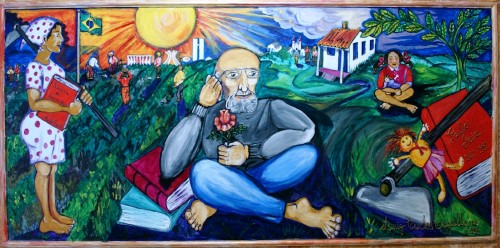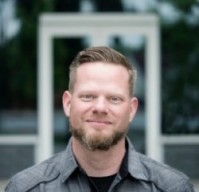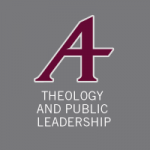 The father of experiential education, John Dewey, presented the world with his most concise and compelling vision of what experiential education could be in his classic, Experience and Education in 1938. It has some valuable lessons for those of us who work in the area of children, youth and family ministry.
The father of experiential education, John Dewey, presented the world with his most concise and compelling vision of what experiential education could be in his classic, Experience and Education in 1938. It has some valuable lessons for those of us who work in the area of children, youth and family ministry.
Dewey was writing to critique both the traditional and the progressive approaches to education. The traditional approach was primarily content-driven and didactic. The instructor was the source of knowledge and the student was an empty vessel waiting to be filled with all the knowledge the instructor could impart. The progressive approach was primarily student-centered and unstructured. The assumption was students would only learn through freedom and a hands-off approach. This was a naïve understanding of both freedom and learning. Learning will not happen unless there is some structure and intended outcome working in partnership with freedom. In his critique, Dewey claimed that not all experiences are educative. These are words to heed for those of us working in youth ministry.
The practices associated with children, youth and families are often thought to be “experiential”. I would agree many of our practices are experiential. However, we must confess that they are not always educative. Camping ministry, retreats, mission trips, and service projects are often touted as the epitome of experiential ministry. They are important practices and far more effective than traditional classroom models of youth ministry. But these experiences are not always educative and are, in fact, sometimes miseducative.
Dewey gives us certain criteria to help us know whether or not an experience is educative, or worthwhile. I believe these criteria are important for us to keep in mind as we consider whether or not the experiences we lead are meaningful, constructive and worthwhile.
Past-Present-Future: Dewey says it must be a thoughtful experience that builds upon people’s prior knowledge and experiences. Much thought is put into choosing a particular experience over any number of other experiences. The leader thoughtfully considers “where” the group is at and what type of experience might meet them there and challenge them appropriately. It is an experience upon which future knowledge can be built and future experiences can be based. Together, these two claims imply that the leader is considering the groups knowledge and experiences leading up to the current experience AND is also considering how the current experience will lead to the creation of new knowledge and future experiences.
Personally Transformative: Every experience is received and perceived differently from one person to the next. In order for an experience to be educative, or worthwhile, it must be transformative. In order for it to be transformative for each participant, we must know each participant well enough to know what he or she needs to experience in order to grow and change. We must be aware of how each young person is receiving and interpreting the experience. We must know the past experiences the young person has had which will shape his or her current experience. Lastly, we will have some idea as to how this experience might move this particular young person towards future knowledge and experiences. Not only do we need to take the time to conceptualize this for each student, we must also have an idea as to how we will help each student make these connections for him/herself.
Socially Transformative: Dewey also believes that experience should not result simply in growth for growth’s sake. It is not enough for one to become a better leader or a better learner. One’s experience should also lead to social transformation. Paulo Freire, author of Pedagogy of the Oppressed, agrees. He claims that “[e]ducation either functions as an instrument which is used to facilitate integration of the younger generation into the logic of the present system and bring about conformity or it becomes the practice of freedom, the means by which men and women deal critically and creatively with reality and discover how to participate in the transformation of their world.” It is not enough to plan learning experiences to socialize our youth into the Christian lifestyle or to raise up leaders. The experiences with which we engage must bring about transformation of our communities and our world.
Leader’s Role: Dewey likens the role of the leader to that of a midwife. A midwife cannot give birth to the child, but helps one give birth to her own child. We cannot “give learning” to a young person but we can help a young person bring about her own learning. This requires us to find ways to engage the voice of our youth in the entire process of discerning, planning, leading and reflecting on an educative experience. It involves the hard work of asking really good questions and making really good connections with previous experiences and knowledge in order to help young people interpret and understand the experience.
According to David Kinnaman, author of You Lost Me, many young adults leave the church due to our inability to help them learn wisdom. Wisdom is different than knowledge, or content. Wisdom is the ability to access knowledge for the sake of practice. It is also the ability to access experience in order to better understand knowledge. Wisdom is the constructive interaction between knowledge and experience. For a long time the church emphasized knowledge, working hard to pass along the knowledge of God to its young people. Many criticize modern youth ministry for emphasizing experience to the detriment of knowledge. We create experiences but never teach a language, a history or a narrative that helps young people understand their experience. Wisdom is what young people long for from the church. It is the ability to constructively work the intersections of knowledge and experience. This is the same intersection for which Dewey was advocating.
As we plan experiential learning opportunities for our young people – and as we unpack those unpredictable experiential learning opportunities that just pop up – it will serve us well to keep Dewey’s, Freire’s and Kinnaman’s claims in mind. When we take on the role of midwife, helping to birth an experience that connects the past, present and future for the sake of personal and social transformation, then we will be facilitating educative experiences. We will be helping our young people understand how their experiences of God’s work in their daily lives are connected with God’s work in the Christian narrative and to the future coming of God’s kingdom.
Educative experiences become the glue that holds all other foundations mentioned here together. It becomes the method through which we engage relationally in the holistic reality of our young people’s lives, helping them to think theologically about their experiences in order to gain a deeper understanding of their vocations. This is the way in which we discern and proclaim Christ’s presence and activity in the lives of our youth.
This post is the ninth post (of 9) in this “anti-model” series.





